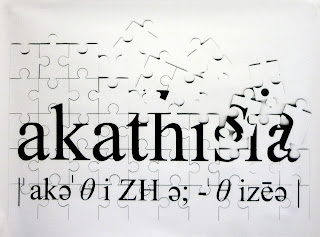Personally I believe all psychiatric drugs should be prescribed by a psychiatrist rather than a GP because a good shrink is more likely to know more about your personal (or personnel) needs - motivational, practical - rather than just whether you have high blood pressure or webbed feet.
Many depression sufferers are artistic. It's a chicken or egg situation - as artists we tend to be perfectionists and prone to feelings of failure which can stimulate depression... when depressed we are more open minded, however negative, and tend to be at our most artistic. There are novelists, musicians and painters dating back to (ahem, I wish I paid more attention at school) a long time ago who back up this theory.
But are anti-depressants a solution for artists?
I met with a musician yesterday. A talented man with proven success and all the frills of fame and fortune. Although he cannot see it. He suffers from acute depression and is currently on a high dose of anti-depressants. He was first put on these after a suicide attempt, however, as his dose has increased over the last two years he has made three more attempts which have landed him in intensive care. He told me that the tablets' side effects mute his love of music, music is his life and he simply cannot face life without music.
So, we are faced with a choice, mend ourselves with anti-depressants which curb depression but can numb our artistic passion which in turn can make us depressed again, or mend ourselves with that very artistic passion but continue to be depressed.
Hmm.. as both artist(ic) and a manic depressive I can see both sides of this argument I seem to have created. My choice, and this is not the answer, was to meet in the middle. I reduced my dose to a safe point where I don't hit rock bottom and can create art sometimes.
Best of luck if you're ever faced with this decision.















